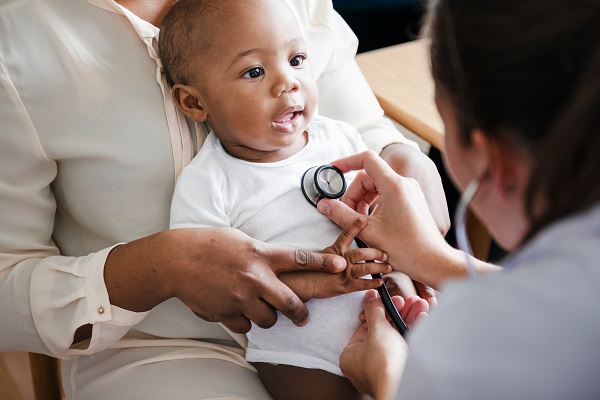Preventive Pediatric Healthcare Tips

Regular visits to the pediatrician are the best way for parents to know about their child’s progress and development. Visits like this also allow parents to make inquiries and get advice.
The American Academy of Pediatrics advises that parents take their children to see their primary care physician at age 12, 15, 18, 24 and 30 months, and then annually until they hit six years. Afterward, children should see their doctor when they are eight and ten years old. The visits can be more frequent depending on the doctor’s recommendation or the family’s need.
Preventive pediatric health care tips
Health care visits
During visits, the pediatrician will take multiple measurements, perform screenings and administer vaccinations. The child’s weight, height and head circumference will be checked. Good growth is generally a sign that the child is in good health.
The doctor will check the child’s development progress since the last appointment. He or she will also ask age-relevant questions regarding the child’s behavior. The parents and doctors can discuss this and work out ways to handle any behavioral or developmental issues.
The pediatrician will also perform a thorough physical evaluation. Aside from checking various body parts, he or she may ask the child to do some age-suitable tasks to check for gross and fine motor skills.
Safety
Specific safety concerns depend on the child’s age. For instance, the discussion may be about ensuring bicycle safety for a six-year-old. The following preventive tips apply for children’s safety:
- Position car seats in the rear seats of the car.
- Use age-suitable and weight-recommended car seats. For instance, infants and toddlers should sit rear-facing until they are above two years old or until the car seat becomes inconvenient for their weight or height.
- Understand automobile safety as a passenger and pedestrian
- Keep window cords tied and beyond reach to avoid strangulation
- Use safety belts and caps
- Keep handguns out of reach
- Limit falls
That is not all
Together with the recommendations above, the following injury prevention rules apply to five-year-old children or older:
- Keep children below 13 years restrained in the rear seat of the car.
- Ensure children use a bicycle helmet and protective sport equipment
- Teach children how to cross the street safely.
- Do not leave children at the swimming pool unsupervised and always ensure they wear life jackets when swimming on boat rides.
The pediatrician may stress other safety tips, including the essence of installing and using smoke alarms and placing potential toxic substances (chemicals, drugs and cleaners) beyond children’s reach. Parents should talk with the doctor regarding topics that apply to their family condition. Children will need to join the conversations as they grow older.
Nutrition and exercise
Parents can prevent overweight children by creating a healthy eating routine and encouraging regular exercise. Parents should ensure their kids have access to different types of healthy meals, including fruits and vegetables, complemented by other protein sources. Also, parents should reduce children’s intake of fruit juices or other sugary meals. Generally, children should be cautioned against too many snacks or foods high in calories and salt.
In conclusion
Children benefit immensely from exercising and staying physically and emotionally fit. Keep the pediatrician on quick dial if you ever need to ask questions.
Request an appointment here: https://www.emeraldpediatricandfamilyclinic.com or call Emerald Pediatric & Family Clinic at (281) 444-7726 for an appointment in our Houston office.
Check out what others are saying about our services on Yelp: Pediatrician in Houston, TX.
Recent Posts
Primary care services include different forms of services aimed at managing a patient’s health. The professionals who provide these services are unique because they have training and experience diagnosing and treating a broad range of health conditions and providing preventative care.Primary care physicians provide primary care services, which include routine physical exams, treatment for minor…
Want to learn from a pediatrician? If you have any questions about your child’s overall health, all you need to do is write them down and ask your child’s pediatrician the next time you go in for an appointment. Parents need to realize that the pediatrician they choose to treat their child not only diagnoses…
Allergy testing can benefit patients with mild to life-threatening symptoms. According to the American College of Allergy, Asthma, and Immunology, over 50 million Americans have some type of allergy. Many will deal with annoying, but not life-threatening, environmental allergies such as pollen and mold in the spring and fall, while others will spend their lives…
Primary care is routine healthcare services that are provided by a general physician. One of the main parts of primary care is disease prevention, which consists of various things ranging from examinations to blood tests. While disease prevention may sound unnecessary, it can actually go a very long way in ensuring that individuals remain in…


